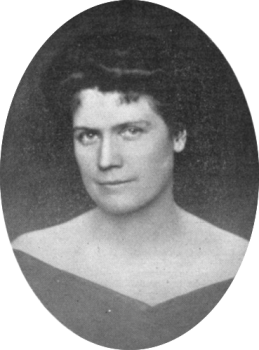
One hundred years ago this week, Grace Kingsley reported on a scheme to promote the short comedy Fire Bugs on offer at the Superba, not the feature:
Speaking of firebugs, starting Monday night at 7:30 and again on Wednesday and Friday nights at the same hour, Chief Scott will send to the Superba Theater several of his officers, who will make addresses in the theater and to the waiting crowds, outlining briefly the “Don’ts” which will prevent the cost of lives and hundreds of thousands of dollars annual through conflagrations. Harry Sweet, star comedian of Fire Bugs, will likewise be on hand to help.

This made a lot of sense, because in her review Kingsley said that Fire Bugs “gets over hilariously” while the feature The Torrent made her wonder “whether it was worth directing at all.” Considering how strong many comedy shorts were at the time, they must have been often used to prop up weak features.

Motion Picture News had more details about this combination of a public service announcement and free advertising:
A new way to turn a comedy into a feature was demonstrated recently by Manger Nobel Hearne of the Superba Theater, Los Angeles, when he used the Century comedy Fire Bugs to show the fallacy of attempting to fight fire when you do not know how, and members of the Los Angeles Fire Department to lecture and give practical suggestions along the proper lines of preventing disastrous conflagrations.
Twice each day a big fire engine with complete staff drove at breakneck speed to the front of the Superba Theater. Here Chief Scott and his men spoke to the crowd on the street, giving proper instructions as to the proper way to fight fire and later from the stage of the theater gave practical demonstrations of their instructions.
How exciting! If the photo at the top of the post is any indication, it really got people’s attention. Moving Picture Weekly reported on the clever young man (only 21 at the time!) who thought it all up:
Nobel Hearne recently became manager of the Superba after serving as assistant manager for more than a year. During that time he had charge of arranging the lobby displays and special features for the program and his capable handling of this work led to his promotion to the managership.
Before he moved to Los Angeles, Hearne had “considerable experience in this work with the Saenger Amusement Company of New Orleans.” Nobel J. Hearne had quite a variety of jobs and residences; the list I can gather from his records is probably incomplete. By 1922, he was managing the Frolic Theater in San Francisco. By 1930 he had gotten out of the theater business and was managing a grocery store in Yonkers, New York. The 1940 census found him running a ranch in Blanco City, Texas. In 1942 he enlisted in the Veterinary Corps in Texas. When he died in 1947 from coronary thrombosis following an intestinal obstruction, he was the postmaster and a merchant in San Antonio.

This week, Kingsley had some librarian news. Screenwriter Elmer Harris had a reference question, so he telephoned Elizabeth McGaffey, head of the Lasky research department. He needed everything she could find at the public library about sleepwalking. So:
Two days passed, and Mrs. McGaffey telephoned Mr. Harris, saying, “Well, I have the books you wanted, but it was awfully hard work to get them. I had to go through the police authorities, and heaven knows what red tape!”
“Police?” demanded Mr. Harris, mystified.
“Yes, and I hope you never put me on any subject like that again,” said Mrs. McGaffey. “I may not be a little young girl, but still—”
“In heaven’s name, what’s the matter?” demanded Harris, irritated. “What are you getting so prudish about? Well, send the books along.”
The books arrived at the studio in due course. And Elmer Harris nearly fell out of his chair when he read the titles. They were all on the subject of street-walking!

After all McGaffey’s work, Elmer Harris really should have made a movie about prostitution, but he never did. However, he wrote that film featuring sleepwalking, The Girl on the Stairs (1924).

As an ex-public librarian, I have questions. What was WRONG with the reference librarians? Why did they involve the police? What other topics inspired them to call? This goes against everything I learned in library school about the right to access information and my profession’s fight for intellectual freedom! Harumph! I sadly learned that it wasn’t always so: the American Library Association didn’t adopt their Library Bill of Rights until 1939, and their Office for Intellectual Freedom wasn’t established until 1967. So in the bad old days this sort of thing happened. At least McGaffey got the information she needed. Now you can feel free to research streetwalkers all you want and librarians won’t call the cops on you.


















